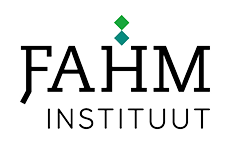Abū Bakr al-Jassās (d. 370/980) was one of the most important early Hanafi scholars who was one of the first to write extensively on the trends in Usūl al-Fiqh (Fundamental methodology of Jurisprudence) and the first systematic exegese on the rulings in the Qur’an (’Ahkām al-Qur’ān). In his work on Usūl al-Fiqh he has a chapter on “The Rulings on things prior to the arrival of Revelation in prohibition and permissibility (’Ahkām al-’Ashayā’ qabla majī’ al-Sama‘ fī al-Hazhru wa al-ibāha)”, wherein the status of things apart from revelation is discussed. For example: Is stealing or murder prohibited through reason or only through revelation? It were these questions that were discussed to assess the authority of reason, the role of revelation,…
Read More
Roepen moslimgeleerden en intellectuelen over de hele wereld op om een jurisprudentie van het begrip “burgerschap” (li-ta’sil mabda’ al-Muwaṭanah) te ontwikkelen, die inclusief is voor diverse groepen. Deze jurisprudentie zal geworteld zijn in de islamitische traditie en beginselen en rekening houden met mondiale veranderingen. Sporen moslim onderwijsinstellingen en overheden aan een moedige herziening van educatieve curricula die eerlijk en effectief enig materiaal behandelen dat aanzet tot agressie en extremisme, leidt tot oorlog en chaos, en leidt tot de vernietiging van onze gedeelde samenlevingen; Roepen politici en besluitvormers op om de politieke en juridische stappen te nemen die nodig zijn om een constitutionele contractuele relatie tussen de burgers te vestigen, en alle formuleringen en initiatieven te ondersteunen die gericht zijn op…
Read More
Zeg tegen mijn broeders, die mij beschouwden als een overledene vervolgens om mij huilden en weenden uit verdriet, denkt u dat ik de overledene ben van u; nee waarlijk bij Allah ben ik deze overledene niet.
Read More
Hassan bin Thabit een metgezel én tevens de bekendste dichter van de Boodschapper van Allah,- Allah zegene hem en brenge hem heil. Volgens een overlevering liet de Boodschapper van Allah, – Allah zegene hem en brenge hem heil, Hassan de minbar bestijgen om zijn prachtige gedichten ter ere van de stichter van de Islam voor te dragen. Een bijzonder intrigerende ode (Qasidah) aan de stichter van de Islam is de “Siraaj wa Haadin” ( “ Een lichtbron en een Gids”).
Read More
In this analysis we will show how the Islamic tradition constructs a sacred cosmology wherein a sacred space and sacred time are defined. In Sunni Islam only a few sacred spaces on earth exist, the majority belong to the world unseen (alam al- ghayb) and are not accessible for the common human. But when there is a transfer between the seen and unseen world a sacred time is created which is accessible for the whole of creation. The most clear example of the creation of sacred time is Laylat al-Qadr, which is seen as sacred due to the sending down of the Qur’an and fate (qadar). But as the Qur’an doesn’t indicate when this night is, intertextual interpretations were constructed…
Read More






